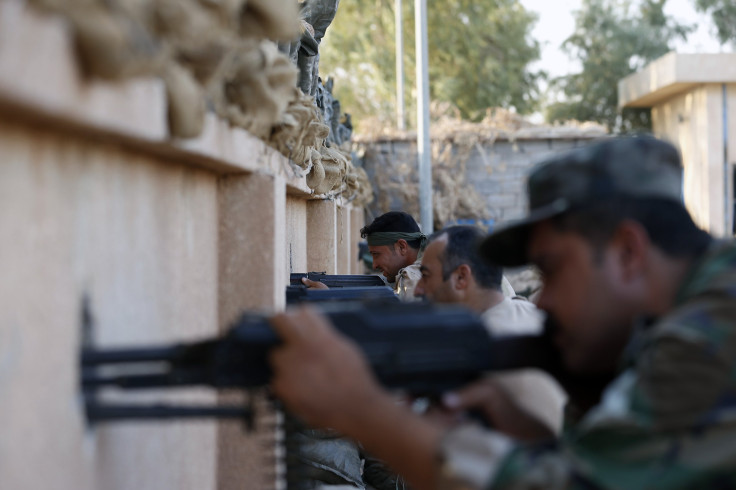Americans Fighting ISIS? Kurdish Peshmerga Weary Of Foreign Volunteers In Islamic State Fight

Many Americans say they wish the U.S. would take a more active role in the fight against the Islamic State group, also known as ISIS, which now controls large swaths of Iraq and Syria. Just a few, however, have taken matters into their own hands and traveled to Syria or Iraq to fight alongside U.S. allies on the ground.
"I joined Peshmerga because I love the Kurdish people," John Cole, 23, told Voice of America, referring to the military force of Iraqi Kurdistan. "They are very kind and share everything they have. I joined to stop Islamic State terrorism from killing the people I love."
Cole, a 7-footer who towers above his fellow fighters, has drawn the spotlight on a steady flow of foreigners who have traveled to join the fight against ISIS. Local fighters have given him the name "Long Tiger," and Kurdish commanders report dozens of Americans have, like him, joined the Peshmerga in recent months. Their actual role on the ground remains murky, however, and past reports indicate the Kurdish leadership remains skeptical of the foreign fighters.
#Western Volunteers Play Murky Role in #Kurdish Fight Against #ISIS https://t.co/bdczpER7G4
— Kurdistan in English (@KurdinEnglish) January 24, 2016
"We won't allow the fighters to come officially," Jabar Yawar, chief of staff for the Ministry of Peshmerga, told VOA. He added that the ministry does not register Western fighters.
"They come to Kurdistan as civilians," he said. "We have no connection to them. We have no documents, no data and no information about the volunteers."
Western fighters, many of whom are veterans of the U.S. military, often play supportive, logistical or training roles. Peshmerga officials have said that they are not allowed to fight on the front-lines, prompting some of them to pack their things and return home, Rudaw, a Kurdish news outlet, reported last year. While the fighters are not officially sanctioned, they are provided with shelter and food. One American was reported to have been killed fighting with the Peshmerga.
Kurdish officials have said what they need are weapons and supplies, not more manpower. But one plus in having foreign volunteers is they require minimal training since many already have served in the U.S. military. Cole, who plans to participate in upcoming offensives against ISIS, said he hasn't received any training and doesn't need it.
"The American people and Kurds have a special bond that can't be broken," Cole said. "I miss my family a lot. But me being here fighting [ISISI] will give them a safer future."
© Copyright IBTimes 2024. All rights reserved.






















